As the SEO landscape evolves, traditional link building practices are under increasing scrutiny. Paid backlinks are risky, often violating Google’s guidelines and putting domains at risk of penalties.
In this environment, business owners are seeking sustainable, ethical alternatives that provide real value without compromising trust.
Crowdfunding link building offers such a path, one that aligns brand generosity with digital growth. Instead of paying for links through private networks or link farms, this strategy involves donating to crowdfunding campaigns or nonprofit projects in exchange for a backlink on their sponsor or donor pages.
It’s an intersection of philanthropy and marketing that creates mutual benefit. The recipient receives funding, and the donor gains a high-quality backlink from a legitimate, often high-authority site.
Unlike conventional outreach-based methods, crowdfunding link building is straightforward, scalable, and compliant when handled with transparency. It’s purposeful giving with tangible SEO returns.
Table of Contents
What Is Crowdfunding Link Building?
Crowdfunding link building refers to the practice of acquiring backlinks by contributing financially to crowdfunding campaigns, nonprofit initiatives, or community-driven platforms that publicly recognize donors with a backlink.
It is a form of sponsorship link building, but with a distinct emphasis on supporting publicly verifiable causes or ventures through digital platforms.
This strategy is built on transparency. Many nonprofits, creators, and open-source developers maintain a “Sponsors” or “Supporters” page to acknowledge contributions.
These pages often include links back to the donor’s website (either through text or logo), offering genuine contextual value and visibility.
What differentiates this from black-hat link schemes is the exchange’s openness and the charitable or developmental impact involved.
The intention isn’t to manipulate search rankings through artificial placement, but to earn links by supporting causes that openly credit their backers.
Many of these donor or sponsor pages are hosted on authoritative domains, especially those tied to education, government, or recognized open-source platforms. Hence, they provide link equity that aligns with Google’s guidelines.
As an added benefit, the link is often accompanied by goodwill-driven brand exposure, making this strategy particularly appealing for socially responsible brands looking to grow SEO authority while contributing meaningfully to communities or innovation.
How It Works: The Link Exchange Behind Donations
Crowdfunding link building operates through a simple mechanism: donate to a relevant cause or project, and receive a backlink in recognition. It’s not transactional in the manipulative sense but built on visibility given in good faith for support offered.
Here’s a breakdown of how the process typically works:
- Identify Suitable Projects or Nonprofits: Focus on campaigns that are contextually relevant to your niche, whether in education, tech, local communities, or industry-specific innovations.
- Verify They Offer Backlink Recognition: Check their websites or campaign pages for a “Sponsors,” “Donors,” or “Backers” section that includes website URLs for supporters. Confirm if they’re still accepting listings.
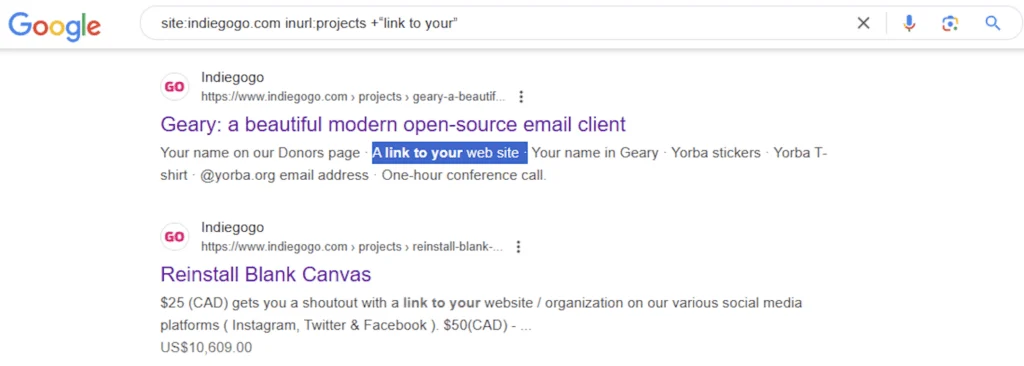
- Assess SEO Value: Use tools like Ahrefs or Moz to check Domain Authority, backlink profile health, and whether the sponsor page is indexed in Google. Prioritize domains with strong metrics and low outbound link spam.
- Make a Meaningful Donation: Contributions typically range from $20 to $500, depending on the campaign’s visibility and expected recognition format.
- Submit Your URL and Optional Logo: Depending on the page design, you might be listed with just anchor text, a brand name, or a clickable logo. Clarify if the link will be dofollow or nofollow.
- Track Link Placement and Indexing: Use Search Console, third-party crawlers, or the simple “Site:” command on Google search to ensure the page is indexed and the backlink appears live.
Many of these donor pages sit on domains with DA scores above 50 (especially for open-source foundations or academic initiatives), making them valuable additions to a clean, white-hat backlink profile.
Best Platforms and Places to Look
Not every crowdfunding or donation platform offers strong link-building value. The key is identifying spaces where donor recognition is structured, visible, and ideally indexed.
Below are five dependable sources for ethical, high-authority link-building through donations, along with insights on how to navigate each.
Kickstarter and Indiegogo
Both Kickstarter and Indiegogo are ideal for discovering tech, innovation, design, and creative projects. Some creators acknowledge high-tier backers on their websites with backlinks.
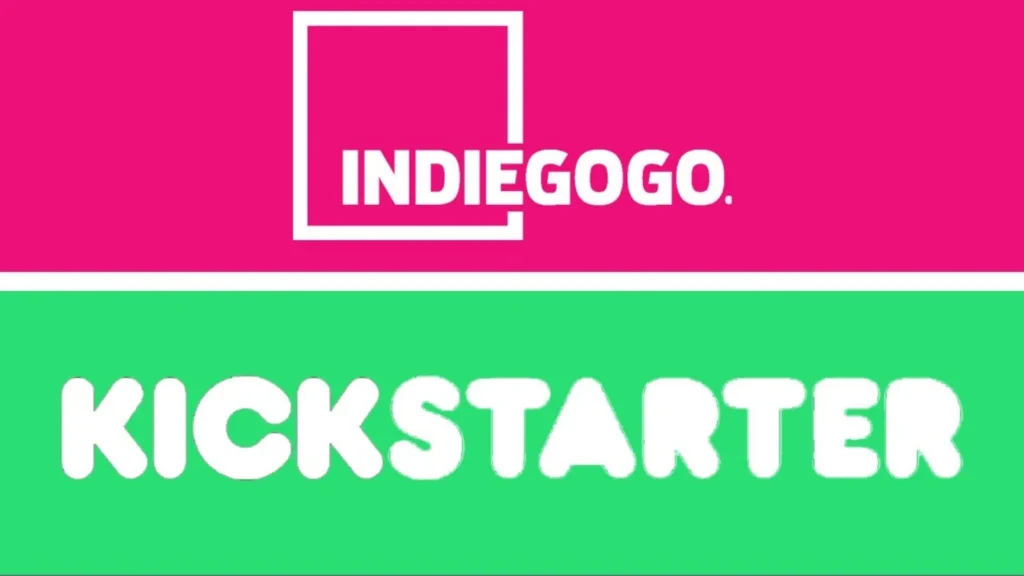
Search for campaigns in your vertical (e.g., smart devices for electronics brands or educational tools for edtech companies).
To find opportunities, check campaign reward tiers or FAQs to see if website backlinks are offered. Follow up with project creators to confirm sponsor listings post-launch. Many set up a standalone “Supporters” page on their product websites once the campaign concludes.
GoFundMe
While primarily donation-focused and less structured for link building, GoFundMe campaigns tied to community causes, medical support, or education sometimes link back to donor websites via thank-you pages or social platforms.
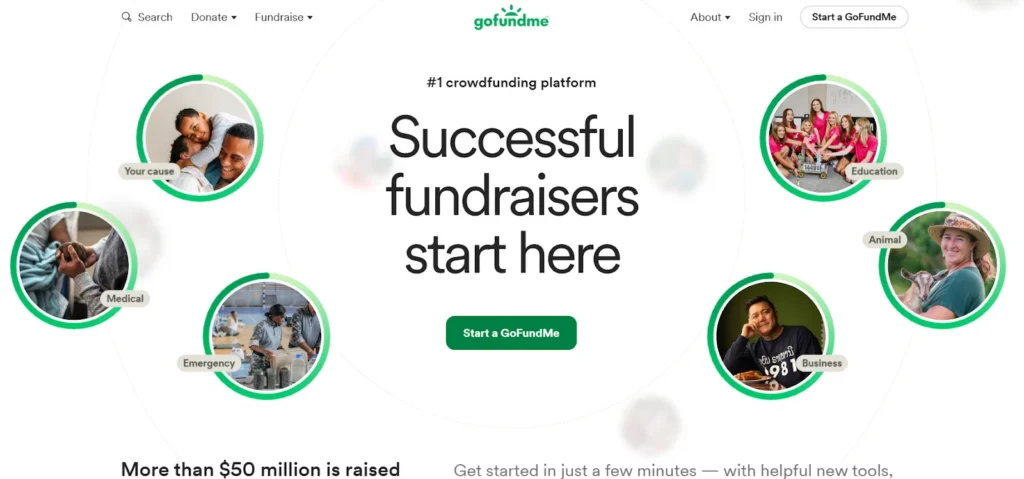
This is more viable for local businesses or brands focused on CSR. Target causes within your region or industry and contact organizers directly to inquire about recognition formats beyond the campaign page.
DonorBox or GiveWP-based nonprofit sites
Nonprofits using platforms like DonorBox or GiveWP often include public donor walls or sponsor directories. These can offer highly relevant, indexable backlink opportunities, especially for health, education, environmental, or faith-based sectors.
Look for nonprofits with active blogs or .org domains. The best way to do this is via their donation page; if recognition is unclear, a polite sponsorship inquiry can clarify.
GitHub Sponsors
Perfect for tech-based businesses or SaaS companies. Supporting open-source developers through GitHub Sponsors often leads to listings on their GitHub README files, documentation, or personal websites.
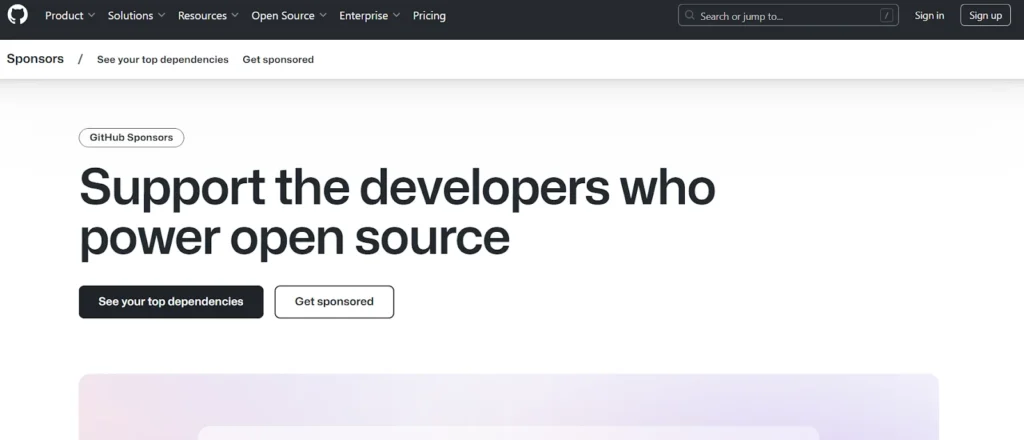
Because many of these developers manage high-traffic projects, backlinks can come from GitHub itself (DA 98) or linked domains with serious authority. This channel also aligns naturally with B2B developer outreach and open-source ecosystems.
School, Library, or Community Project Pages
Local institutions often maintain pages listing donors, sponsors, or partners. These are frequently hosted in government (.gov), educational (.edu), or municipal (.org) domains, all of which are high-authority environments.
Relevant for any business with a geographic focus. Direct outreach to local schools, libraries, or community initiatives can secure recognition, especially if digital literacy or STEM programs are involved. Be sure to confirm whether sponsor listings include clickable URLs.
Evaluating Link Quality Before Donating
Donating for backlinks requires due diligence. Not all donation-based links provide equal value; indiscriminate contributions can dilute your backlink profile or waste resources. Use this checklist to evaluate link potential before committing funds:
- Domain Authority (DA) or Page Authority (PA): Target domains with a DA of 40 or above to ensure substantial link equity.
- Anchor Text Policies: Check whether links use brand names, generic terms, or allow custom anchors. Avoid campaigns with over-optimized or spammy anchor practices.
- Outbound Link Ratio: High-quality pages should not be overwhelmed with outbound links. Look for sponsor pages with fewer than 50 external links.
- Relevance to Niche: Ensure the campaign or nonprofit operates within or adjacent to your industry to strengthen contextual relevance.
- Indexing and Dofollow Status: Confirm the page is indexed in Google and that the link is not marked as “nofollow” (unless for brand exposure or CSR purposes).
Tools like MozBar offer instant on-page DA scores and link metrics to assess these factors. Ahrefs helps verify backlink quality, page performance, and domain health before you donate.
For indexing confirmation and crawling, Screaming Frog SEO Spider is invaluable. It will show if the sponsor page is blocked via robots.txt or canonical tags, helping you avoid dead zones.
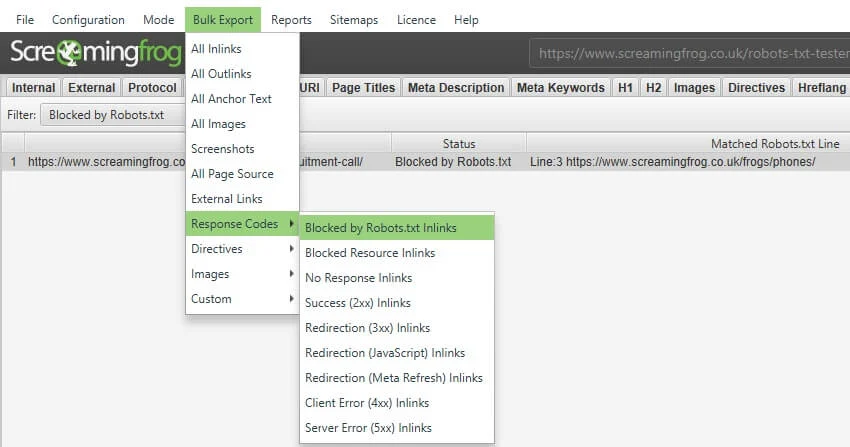
These tools collectively ensure you’re not donating blindly, but strategically supporting projects while securing credible backlinks that actually move the SEO needle.
Ethical Considerations and Transparency
When executed with transparency and goodwill, donation-based link building doesn’t fall into the same category as paid links or black-hat SEO tactics. The difference lies in intent, disclosure, and the natural value exchange between contributor and cause.
You’re not buying a link; you’re supporting a mission and receiving recognition, which happens to include a backlink.
These backlinks are typically offered in good faith, as part of donor acknowledgment or sponsorship perks, similar to a plaque or logo placement at a physical event. They’re often passive, non-promotional, and reside on pages that hold editorial control.
Best practices include:
- Don’t request exact-match or manipulative anchor text. Stick to branded or neutral phrasing.
- Don’t use fake names or identities to secure links through multiple aliases.
- Disclose contributions if asked or if the organization’s policy requires it.
Positioning this strategy within a broader CSR or charitable marketing framework can strengthen its legitimacy. It allows your brand to support causes that are aligned with your values while benefiting from organic digital visibility.
How to put CSR at the heart of your marketing strategy
For community-focused businesses or those invested in social impact, this method can become part of a broader, ethical link-building playbook that aligns business goals with social responsibility.
Real-World Examples of Crowdfunding Link Building
Crowdfunding link building is already being used by real businesses across diverse niches. The following examples showcase how donation-driven recognition pages can generate both visibility and authority for sponsors.
Bluehouse Greenhouse on Indiegogo (Local Business)
Bluehouse Greenhouse, a sustainable farm-to-fork venture, ran a crowdfunding campaign on Indiegogo and listed sponsors on their official website. High-tier donors were thanked on their supporter page with logo backlinks.
This approach was ideal for local food producers, sustainability brands, and eco-conscious businesses that wanted community presence and high-authority .com domain backlinks.
Their website earned strong local SEO traction due to regional mentions and link equity from campaign traffic.
MetaBrainz Foundation via Donorbox (Tech/Education)
MetaBrainz, the nonprofit behind MusicBrainz, uses Donorbox to collect donations and lists supporters with hyperlinks on its donor recognition page.
This example is relevant for tech startups, SaaS providers, and music-related businesses. The organization’s domain has high trust, and donations result in direct recognition via dofollow links, adding valuable authority to sponsors’ backlink profiles.
Library Futures via GiveWP (Advocacy/Education)
Library Futures is a nonprofit advocating for digital equity in libraries. Their partners and sponsors page listed organizational contributors and includes logos and links (the page doesn’t exist now).
For edtech, publishing, or digital access services businesses, aligning with a mission-driven nonprofit can offer visibility and credibility. The site’s consistent updates and educational partnerships improve domain performance, making links from these pages especially impactful.
Bonus Benefits: Beyond the Backlink
The value of donation-based link building extends beyond pure link equity. While the backlink itself supports domain authority, the ancillary benefits can often drive long-term brand value and visibility.
These advantages make this strategy even more viable for businesses with layered marketing goals.
Consider these secondary benefits:
- Increased brand trust by association with credible nonprofits or public projects.
- Improved local SEO when supporting community-focused campaigns or institutions.
- Enhanced content opportunities through press releases, case studies, or campaign recaps.
- Stronger networking potential with organizers and fellow contributors.
- Organic social media visibility as projects acknowledge or tag supporters online.
These layers of value help reinforce the ethical and strategic foundation of crowdfunding link building. When integrated thoughtfully, they can simultaneously elevate a brand’s public image, community involvement, and digital authority.
How to Track and Monitor Your Impact
Tracking outcomes from donation-based links is essential to validating ROI and optimizing future campaigns. This includes monitoring both technical metrics and user engagement generated from the link placement.
Key metrics to track:
- Whether the link is indexed and remains live over time.
- Health of the linking page—load speed, crawlability, and HTTPS status.
- Referral traffic volume and bounce rate from the donor page.
- Social media mentions tied to the donation or sponsorship.
Use UTM parameters to tag your donation-related URLs so you can isolate them in Google Analytics reports. It will help measure referral quality and conversion influence more clearly.
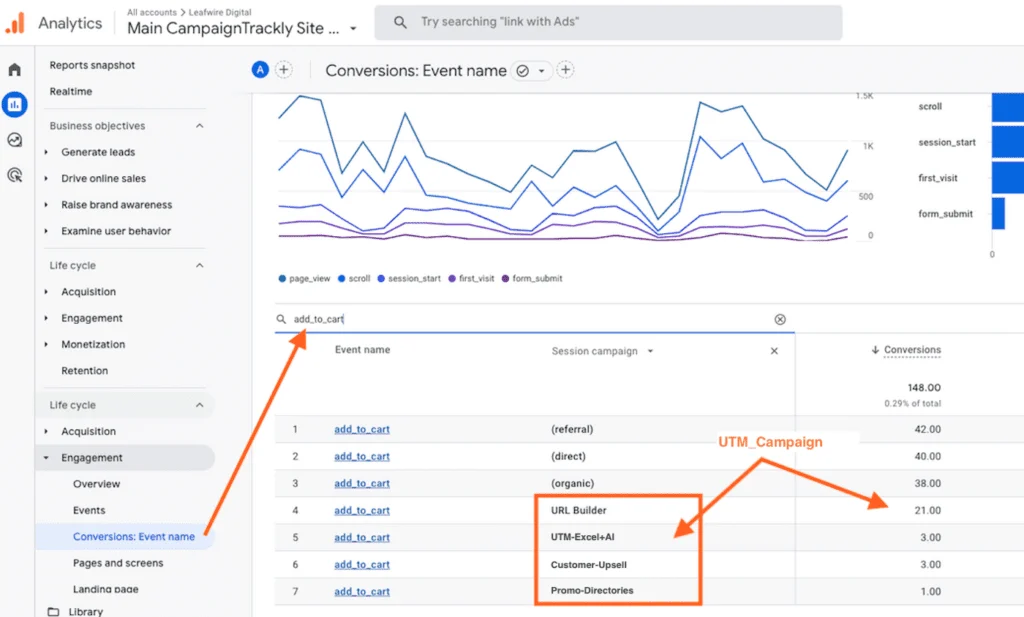
Google Search Console also offers insight into whether the link is contributing to new keyword impressions or pages being discovered.
Combine this with tools like Ahrefs or Moz to track changes in domain authority or link profile growth. Over time, these analytics help refine which platforms and donations are worth repeating.
Conclusion
Donation-driven link building offers a scalable, ethical, and high-ROI strategy for modern businesses. Aligning marketing with social responsibility creates opportunities to earn high-quality backlinks and contribute meaningfully to communities and causes.
Unlike transactional link buying, this approach fosters transparency and long-term value while building relationships in the process. With due diligence, consistent tracking, and thoughtful targeting, crowdfunding platforms can become untapped reservoirs of legitimate SEO gains.
Whether supporting nonprofits, open-source projects, or local institutions, this method can empower business owners to give back while growing forward.


